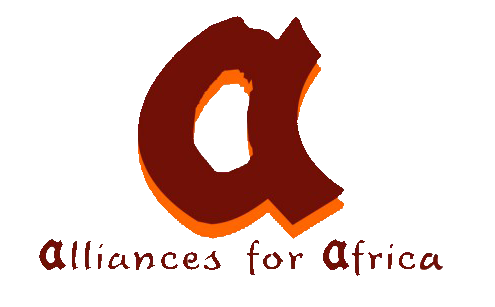15 November 2017
Immediate Press Release:
The Nigerian Feminist Forum (NFF) and its partners totally reject and condemn in strong terms the comment made by Nigeria’s Inspector-General of Police, (IGP) Mr. Ibrahim Idris, on Sunday November 12, 2017, to the effect that ’[’T]here is no law that prevents me from marrying a serving female police officer.’’ The Sunday Punch Newspapers revealed that the IGP’s defence was contained in a response on his behalf by his lawyer, Dr. Alex Izinyon, SAN, in an attempt to challenge the allegation of SenatorIsa Misau, that Mr Idris had an affair with a junior female colleague.
The position of the Inspector-General confirms and continues a tradition of mis-treatment of and discrimination against women within the Nigeria Police Force (NPF) under both the Police Act and the Police Regulations (1990), which are ordinarily incompatible with the prohibition against discrimination in Section 42 of the 1999 Constitution. The figure for senior female police officers in the NPF is a mere 5% and for junior female officers12.9%.
Regulations 121-125 of the Regulations confine women in the NPF to welfare roles and clerical duties. They are also expressly precluded from carrying arms. Regulations 127-128 prescribe dismissal for an unmarried police woman who gets pregnant. It is inconceivable that the IGP and his lawyer, a Senior Advocate, are unaware of these Regulations.
Quite apart from these express provisions, it is quite clearly misguided for the IGP or his lawyer to suggest that he can “marry” any officer in service. Marriage is constituted by consent freely given. A relationship between the IGP and a female officer under his command is tainted by implicit institutional duress of command subordination, the existence of which precludes any suggestion of free consent. By his conduct and declarations, the IGP legitimises sexual discrimination and violence against female police officers. This subverts his role as the head of the NPF. In the circumstances the NFF calls for the IGP to reconsider his position and resign.
The NPF’s Gender Policy was designed in 2009. The UN Women, United Nations Population Fund (UNFPA), United Nations Development Programme (UNDP) and CSOs supported the process leading to its adoption. It seeks to eliminate all forms of gender-based discriminatory policies within the NPF and enhance the capacity of the NPF to manage cases of gender and sexual based violence more professionally. Sadly, the IGP seems blissfully unaware of this policy or unwilling to promote or implement it.
The NPF is expected to guarantee law and order, maintain peace and uphold the fundamental human rights to freedom from gender discrimination. However, a police force that cannot or will not protect women within the force from sexual harassment and gender discrimination is ill equipped morally and technically to protect the public from same.
The urgency of the gender and equal opportunities bill becomes more glaring with the ill-advised utterance of the IGP regarding a sexual relationship with his subordinate. A bill to repeal gender discriminatory sections of the Police Act (2004) recently passed second reading in the Senate. While this is good news, the amendments will not go far enough.
The NFF join forces with major stakeholders to ask the National Assembly to do justice to Nigeria and Nigerian women. In particular, the NFF:
• Calls on President Muhammadu Buhari to undertake disciplinary action against the IGP for violating his office and the rules of the NPF;
• Appeals for support in the campaign to eradicate all forms of violence against women by seeing to the passage of GEOBill into law and its implementation as a framework to the Gender Policy of NPF as the world marks the 16 days Activism between 25 November -10 December.
• Calls on the NPF to Review the contents of its to ensure it adequately promotes the wellbeing of the Nigerian police woman, with clear benchmarks for eliminating discrimination and sexual harassment against female police officers;
● Monitor the implementation of the gender policies adopted across the agencies in ensuring conformity to international good practices.
The NFF is equally troubled by the most recent revelations about a recommendation made by the Armed Forces Council to phase out the recruitment and admission of women for regular combatant commissions into the Nigerian Defence Academy, (NDA). This is a travesty in the 21st Century, not only because the combatant female cadets are reported to be doing extremely well but because this decision goes against United Nations Security Council Resolution (UNSCR) 1325 on peace process and security which the National Assembly has ratified.
The NFF notes the statement of Major-General John Enenche, Director Defence Information, of November 14 2017 in response to this report. In his statement, Gen. Enenche merely dismisses the report as “not authentic” but notably fails to say that it is false. The statement claims that currently, no changes have been made to the policy but this is a long way from denying that the Armed Forces Council has decided to phase out combatant female cadets into the NDA. We call on Nigerians and CSOs to remain vigilant and to exert pressure on the Ministry of Defence to clarify the NFF’s understanding of the statement.
Nigeria is signatory to both the CEDAW and the African Union Protocol on Human and Peoples Right on the Human Rights of Women in Africa but they are not yet enforceable in the country because Sec 12(1) of the Constitution stipulates that no treaty entered into by Nigeria shall have force until ratified by the National Assembly. Section 42 of the Constitution of the Federal Republic of Nigeria gives no room for any form of discrimination against citizens based on sex, gender, religion and others.
The NFF further call on CSOs, NGOs, and other groups to join in denouncing what amounts to institutionalised discrimination and abuse of power at the expense and detriment of the fundamental human rights of women in the NPF and the Nigerian military.
SIGNED BY:
Alliances for Africa
Nigerian Feminist Forum
Nigerian Women Trust Fund

